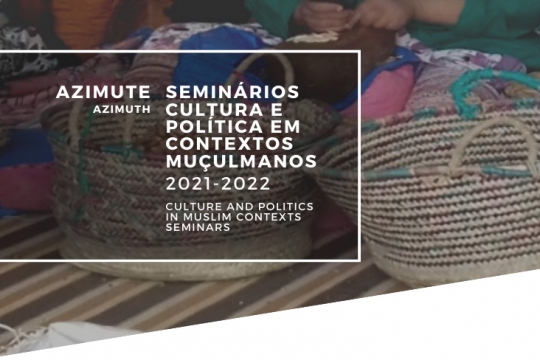
AZIMUTE Cultura e Política em Contextos Muçulmanos
O termo biopirataria refere-se à utilização e comercialização, por empresas farmacêuticas, de recursos genéticos que pertencem à farmacopeia das comunidades indígenas por empresas farmacêuticas, envolvendo o rastreio de plantas e outro material biológico para fins comerciais lucrativos. Para proteger estas práticas pouco escrupulosas, a legislação sobre “Acesso à Partilha de Benefícios” (ABS) do Protocolo de Nagoya defende que os benefícios derivados da utilização da farmacopeia das comunidades indígenas exploradas pelas empresas sejam equitativamente devolvidos.
A apresentação revelará a complexidade da implementação do Acesso à Partilha de Benefícios para as comunidades locais. Em Marrocos, diz respeito às empresas lucrativas capturadas no mercado do óleo de Argan e às mulheres que trabalham em cooperativas recentemente sancionadas pelo Protocolo de Nagoya. Na Índia, relaciona-se com a legislação esbatida de atribuição de ABS relacionada com a exploração da Menta (Mentha arvensis L.), Mostarda (Brassica nigra) e cana-de-açúcar (Saccharum officinarum) num contexto com legislação nacional de Acesso à Partilha de Benefícios e onde o Protocolo de Nagoya já se encontra bem estabelecido.
ENGLISH
Biopiracy refers to the pharmaceutical companies, corporations’ utilisation and commercialisation of genetic resources that belong to the pharmacopeia of indigenous communities. It involves the practice of screening plant and other biological material for lucrative commercial purposes. To buffer for these unscrupulous practices, the legislation on “Access to Benefit Sharing” (ABS) of the Nagoya Protocol advocates that benefits derived from the utilisation of indigenous communities’ pharmacopeia exploited by companies should be equitably returned.
The presentation will unveil the intricacy of implementing Access to Benefit Sharing to local communities. In Morocco, it relates to the corporations lucrative captured Argan oil market and women working in cooperatives in a newly signed Nagoya Protocol. In India, it relates to the blurred legislation of ABS attribution related to the exploitation of Mint (Mentha arvensis L.), Mustard (Brassica nigra) and sugar cane (Saccharum officinarum) in a well-established Nagoya Protocol and Access to Benefit Sharing national legislation.
COM
Bernadette Montanari (CRIA-ISCTE)
ORGANIZAÇÃO
CRIA – AZIMUTE | NOVA FCSH | CRIA – CEAS
ENTRADA
gratuita
